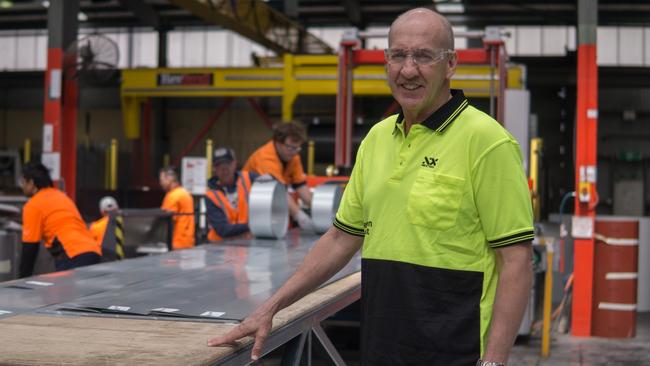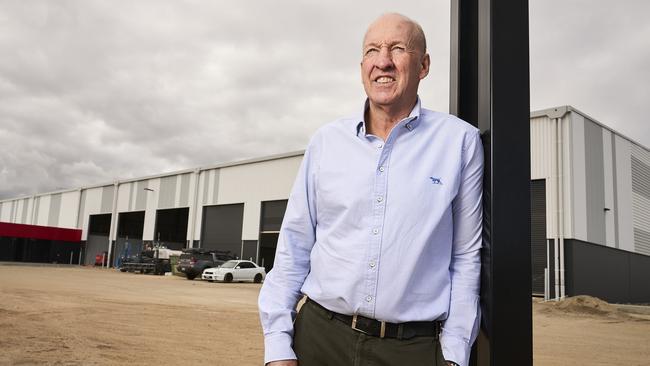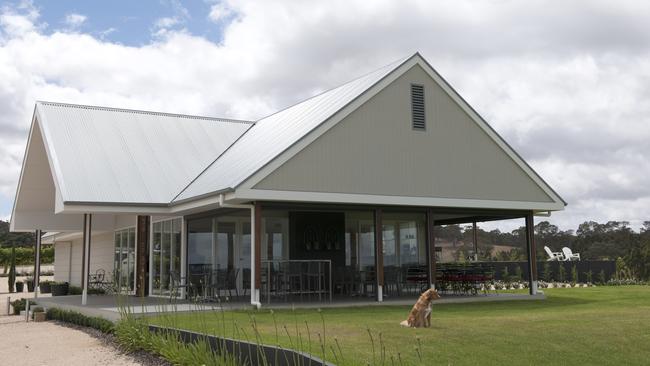Revolution Roofing forensic report uncovers potential false invoicing
A forensic investigation claims more than $8.5m of false invoices could have been used by steel company Revolution Roofing in the lead-up to its $88m collapse.

Forensic accountants claim more than $8.5m worth of false invoices could have been used by failed steel company Revolution Roofing as part of a complex scheme to boost cash flow in the lead up to the company’s $88m collapse.
A preliminary report has been completed by forensic accountants at Grant Thornton, following a review of the company’s servers, laptops and mobile phones, and interviews with current and former staff.
It suggests Revolution Roofing used invoices for steel coil to secure finance from ASX-listed factoring firm Earlypay, while having a separate arrangement with customers whereby they were given security over those materials, but were only expected to make payment if and when they ordered a processed and painted steel product.
Revolution Roofing founder John Easling “vigorously denied” the findings contained in the report concerning the scheme known as the COM (Customer Owned Materials) arrangement.
“Our key findings demonstrate that Mr Easling has repeatedly provided a false narrative regarding the rationale for the COM arrangement,” the report says.
“Ultimately, the COM arrangement was implemented to provide the business early access to cash and was not implemented for the benefit of customers.”
The report includes the allegation internal discussions about implementing the scheme emerged about a year before receivers were engaged by Earlypay to take control of Revolution Roofing.
“This was around the time when the business was deteriorating, and the business had no access to cash,” the report says.
“At this time, Revroof (Revolution Roofing) / PST (sister company Painted Steel Technologies/Nexteel) were also considering funding opportunities to help turn the business around.”

The report suggests Earlypay was unaware of the scheme despite warnings from Revolution Roofing’s lawyers that the debtor finance firm would not approve, given “it is factoring invoices to customers who have no expectation of paying”.
According to the report, Revolution Roofing used a series of “recipient created tax invoices” and intercompany transfers with sister company Nexteel to reverse and clear those invoices – known as COM invoices.
Customers obtained security over the materials ordered, but were only expected to make payment if and when they purchased a processed steel product sourced from those materials.
Revolution Roofing would then send a second invoice to Earlypay for factoring, including additional product and labour charges involved in processing the steel.
According to the report, more than $8.5m worth of COM invoices factored by Earlypay would not be collectable by receivers as they look to recover funds for creditors.
In response to questions, a legal representative for Mr Easling said the veracity of the report by Grant Thornton had been challenged in recent court proceedings and was not received in evidence before the court.
“The assertions by a person from Grant Thornton are vigorously denied,” the legal representative said in an email.
“The so-called report did not comply with any of the requirements for expert reports in the federal court and, as is made clear in the report, is not based on a review of relevant records.
“Moreover, far from it being the case that Earlypay Ltd personnel were unaware of the content of the invoices, (an employee) of Early Pay Ltd was aware of them at all relevant times.”
Grant Thornton claims the $8.5m figure could be larger given its preliminary investigations were limited to the period from June 2022 to December, and there were indications the COM arrangement was in place before that time.

The forensic report was commissioned by Revolution Roofing receivers David Hodgson and Said Jahani from Grant Thornton, and is included in an affidavit filed by Mr Jahani as part of a federal court dispute between secured creditors of the company.
“Earlypay was factoring the COM invoices by virtue of Mr Easling providing these invoices as purportedly eligible invoices that qualify for factoring pursuant to Revroof and PST’s finance arrangements with Earlypay,” Mr Jahani says in the affidavit.
“As receiver of Revroof and PST I engaged my forensic team at Grant Thornton to identify whether fraudulent invoices have been raised in relation to the COM arrangement.
“A key finding of this report was that Mr Easling had knowledge that customers would never pay a COM invoice.”
More interviews with Revolution Roofing staff and customers are planned as part of the next stage of Grant Thornton’s investigations as it seeks to uncover the full scale of the invoicing scheme.
Administrators were appointed to Revolution Roofing on December 6 amid soaring steel prices and ongoing supply chain issues.
Earlypay later engaged receivers to take control of the company on December 23, in a bid to recover close to $29m owed to it by the failed steel company.
The collapse triggered an overhaul of Earlypay’s risk policies, including placing a $10m cap on individual client exposures and reducing its trade finance activities.
Administrator Glenn Franklin from PKF said the forensic report was currently being reviewed as part of the administration process.
“We are undertaking our own review of the report and it will form part of our investigations into the company,” he said.
“Further details will be provided in our next report to creditors to be issued in late June 2023.”
The federal court dispute between secured creditors over the order of priority of debts was partially resolved in a judgment last month, which approved the sale of Revolution Roofing to Victorian company Design Group.
Grant Thornton declined to comment. Earlypay did not return calls.




